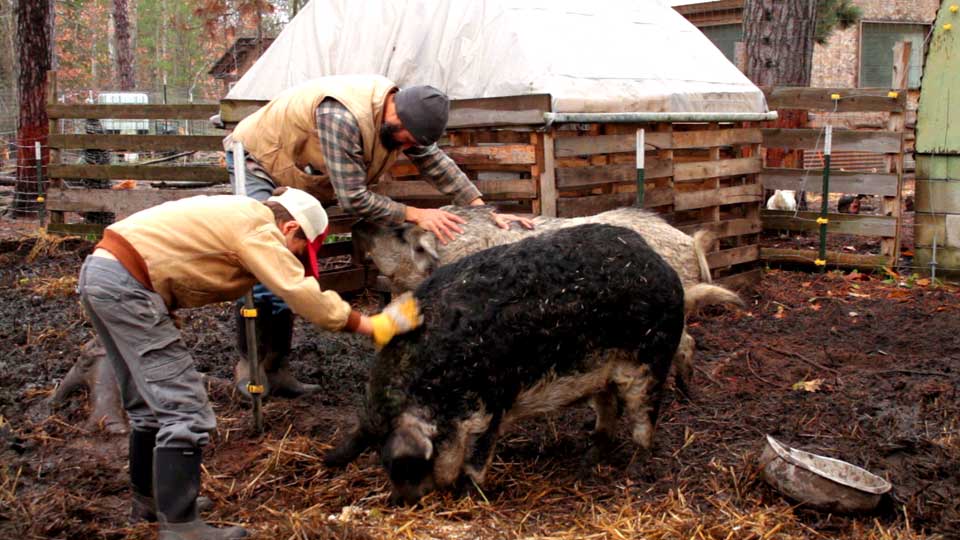Why Breastfeeding Is Important
Why Breastfeeding Is Important

Besides the optimal nutrition of breastmilk babies gain soothing benefits and can often be calmed down when upset just by skin to skin contact at their mother’s breast. (Marquette Magazine photo by Erica McMillan of Soullenz Photography)
If you are pregnant, or have a loved one who is pregnant, you might be wondering about breastfeeding. We’ve seen information recently about the benefits of breastfeeding for mothers and babies. You may have simply heard that “breast is best.” It can be tough to see breastfeeding as important when doctors and hospitals give away free formula samples, or when breastfed newborns are given formula in the hospital. We see many advertisements for infant formula on TV and in parenting magazines. Many of us were not breastfed as babies, and some of us haven’t ever really known someone who breastfeeds. You might ask yourself “What’s the big deal? Why should I breastfeed?”
Why Breastfeeding Is Important:
Nature’s Food Made Exclusively For Human Babies
Breastfeeding is the “biological norm” for human babies, and is something our bodies are programmed to do. Normal human breasts contain all the structures needed to produce and deliver food for human babies. Babies are born knowing how to breastfeed with very little assistance. Breastfeeding is incredibly healthy for babies and their mothers. Years of research by health and scientific organizations reveal that there are a number of benefits to mothers, babies and society when babies breastfeed. It’s worth repeating again that human milk is the normal food for human babies.
2. Health Protection For Babies and Children
Babies and children who are breastfed have health protection that begins from the first feeding following birth, and that carries on into adolescence. Breastfed babies are less likely to suffer from ear infections, respiratory tract infections, meningitis, bowel disease, cancers like leukemia and Hodgkin’s disease, diabetes, asthma, and obesity. Kids who were breastfed score higher on cognitive and IQ tests when compared with formula-fed children. Put another way, formula feeding can contribute to health problems for babies and children, particularly respiratory problems, ear infections and diarrhea.
3. Unique Composition That Adapts To Babies Needs
Human milk is uniquely composed and cannot be duplicated by any artificial means. Amazingly, it’s composition can change from day to day (and even over the course of the day) to provide for the evolving needs of a nursing baby. It contains the ideal mix of nutrients for human babies, including immune factors, growth factors, and substances to promote brain growth and function. No infant formula can compare to a substance so finely tuned and adaptable.
4. Special Protection For Preemies
Breastfeeding gives special protection to babies born prematurely. Human milk has been shown to significantly reduce the risk of severe infections in preemies. In turn, this reduces hospital costs, and length of hospital stays for premature babies. It is the perfect “medicine” for a preemie, and one that only a mother can provide; this puts the mother very much into the care team for her premature baby.
5. Health Benefits For Mothers

Heather Prusi-Wison holds her newborn daughter after a breastfeeding session just hours after her birth. (Marquette Magazine photo by Erica McMillan of Soullenz Photography)
For mothers themselves, breastfeeding can promote a healthy postpartum recovery by lessening postpartum bleeding and anemia. Nursing a baby contributes to increased weight loss and timely return to pre-pregnancy weight. Breastfeeding reduces the risk for long term obesity in women, thus lowering risks for illness and diseases associated with obesity such as diabetes, high blood pressure and heart disease. Nursing a baby can provide protection against breast and ovarian cancers. The more time a woman spends breastfeeding, the greater the protection against these cancers. Breastfeeding a baby can also reduce the risk of osteoporosis.
6. Benefits To Society
Aside from moms and babies, breastfeeding is healthy for our society. Because breastfeeding contributes to optimum health in mothers and babies and is our biological norm, need for expensive health care is decreased when babies are breastfed. Parents need to take fewer “sick days” to care for the healthy breastfed baby.
7. Saves Money
In America, families spend about $2 billion on breastmilk substitutes every year. The average formula-feeding family must spend about $1200 yearly on formula. Our federal budget includes $578 million per year to the WIC program specifically to buy formula for babies who are not breastfed. Imagine what such a vast amount of savings could do for America’s families.
8. Environmentally Friendly
Many of us are concerned with our environment; we reduce, reuse and recycle. Breastfeeding requires zero packaging, zero fossil fuel use, and zero emissions. No harm is done to the environment when breastmilk is produced! In comparison, fossil fuel and electricity are used to manufacture, package and ship infant formula; formula packaging adds to our landfills, as do the bottles, liners and nipples used to feed formula to babies.
9. Convenience
Breastfeeding is really convenient; a mother’s milk is always available at the right temperature and in the perfect composition for her unique baby. You never leave your breasts at home, or run out of milk. There’s nothing to prepare or sterilize, and nothing to throw away afterward.
10. Compatible With Many Lifestyle Choices
Mothers do not have to follow a special diet. Mother’s milk provides roughly the same nourishment to her baby no matter what she’s eating (unless she’s living in famine and severely malnourished). Contrary to popular belief, there are very few medications that are absolutely not okay to breastfeed while taking. If a mother is prescribed a medication that isn’t felt to be safe by her doctor, there’s usually an alternative that can be tried. Mothers who smoke cigarettes, drink caffeine and consume alcohol in moderation may also breastfeed with confidence–the health risks of formula are usually greater than the risks of exposure to medications or these substances in mom’s milk, since these things transfer to milk in such tiny amounts.
A Few General Recommendations For Breastfeeding
It’s generally recommended that babies be breastfed exclusively for 6 months, at which point foods can be introduced. Breastfeeding should ideally continue for at least the first year of life, with some sources recommending breastfeeding for two years and beyond, as desired by the breastfeeding couple. These time spans might seem huge to some mothers who are just getting started, or having breastfeeding challenges. Any amount of breastfeeding is important, though, even if only for a few weeks, or combined with formula supplementation when needed.
Hopefully, this article has shown you something you didn’t know about the importance of breastfeeding, or sparked some questions or curiosity about breastfeeding that you can pursue. Please check back soon for more articles about breastfeeding, including strategies to have a successful start at breastfeeding, common breastfeeding challenges and how to address them, dealing with breastfeeding as a working mother, and more!
Marquette Magazine would like to welcome Heather Prusi-Wilson as a regular contributor to our publication! Look for more articles on breastfeeding by Heather on a monthly basis. Heather holds a Bachelor of Science in Nursing, is a Registered Nurse, and Internationally Board Certified Breastfeeding Consultant. If you or someone you know could benefit from her services she can be reached at the following email: upibclc@gmail.com















You must be logged in to post a comment Login